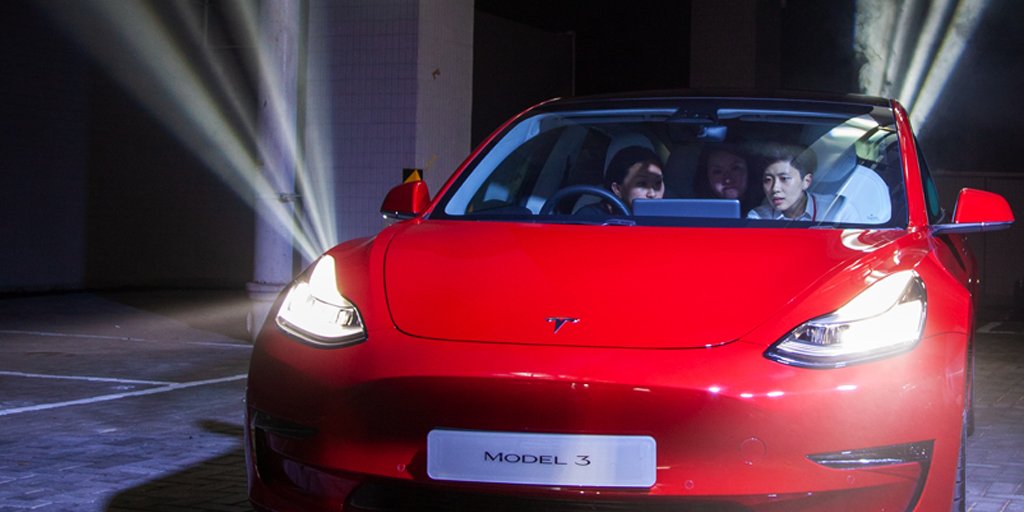Sign up for daily news updates from CleanTechnica on email. Or follow us on Google News!
I recently reported on Tesla’s impressive quarterly sales trends and yet another record sales quarter. Tesla only reports combined global sales of the Model 3 and Model Y combined and of its other models combined, but we have estimated and split out individual models sales from the beginning. That said, even splitting out individual sales can miss some big stories and nuances deeper underneath that surface. Let’s dig in a little further.
Tesla Model 3 SR Dominating in USA
First of all, leading Tesla number tracker and number cruncher Troy Teslike picked out a fascinating finding: the Tesla Model 3 Standard Range’s share of Model 3 sales in the US became completely dominant last year. I had some other theories when first seeing this, but Troy’s explanation was: “Model 3 Standard Range sales in the US increased over time because that’s what Tesla can produce because they don’t have enough 2170 cells to produce more Long Range versions. In the past, Tesla was focused more on range which is the most important criteria for EV buyers.” Presumably, that’s the core explanation. However, I also wondered if Tesla was prioritizing deliveries of the Standard Range (SR) in 2023 knowing that it would not qualify for the $7,500 US EV tax credit in 2024. Furthermore, I wondered if Tesla had perhaps tapped much of the market for the more expensive Model 3 but was still able to find many buyers for the cheaper Model 3 as it lowered prices and word of mouth spread about how cheap a Tesla could be. After all, Tesla did engage in a lot of price cutting as the year went on in order to stimulate more demand.
Model 3 Standard Range sales in the US increased over time because that’s what Tesla can produce because they don’t have enough 2170 cells to produce more Long Range versions.
In the past, Tesla was focused more on range which is the most important criteria for EV buyers. pic.twitter.com/0jeJfbKMwU
— Troy Teslike (@TroyTeslike) December 21, 2023
Lastly, I also wondered if more people simply realized they don’t need 300 miles of range, that 200 miles is plenty. For the past decade, I’ve been an advocate for the fact that people drive a lot less than they think they do, and with the convenience of home and/or workplace charging, they often need much less range (much smaller batteries) than they think they do. Perhaps that message has been getting out there.
But Troy said it’s all about battery supply. Maybe it is.
Model Y vs. Model 3 in China
This next one isn’t about volume sales, but about pricing. Back in early 2022, the Model Y Standard Range cost about $6,000 more than the Model 3 Standard Range in China. However, as time went on, the two models got closer and closer in price. At the end of 2023, they were almost the same price!
Here is an interesting trend. The chart shows the price difference between Model Y and Model 3 Standard Range RWD in China, in USD. Model Y is more expensive but the gap has shrunk over time.
Model 3 production has maxed out. So, Tesla wants more people to choose the Model Y. pic.twitter.com/a8mRAPTuFX
— Troy Teslike (@TroyTeslike) December 15, 2023
Notably, Model Y sales were much higher in China, but so was production capacity there. The key reason behind the price trend, as Troy mentions, is that Model 3 production was maxing out whereas there was a little more supply relative to demand with the Model Y — so its price was dropped several times in order to move more product.
Regarding that difference in production volume, another graphic from Troy Teslike shows that Model Y production at Giga Shanghai was nearly double Model 3 production in the 4th quarter, and was more than double Model 3 production in the 3rd quarter.
Giga Shanghai production is expected to be a new record in Q4. Model Y to Model 3 ratio was 1.77 last year. It’s expected to be around 2.07 this year. In other words, Giga Shanghai makes twice as many Model Ys as Model 3s. pic.twitter.com/OuQvrfK7Qv
— Troy Teslike (@TroyTeslike) December 15, 2023
Considering the need to lower prices to move Model Y units, it seems the market may be reaching its “natural limits,” as Jose Pontes says. Or, at least, it was for the time being in 2023. We’ll see if there are any notable changes in 2024 and beyond.
Have a tip for CleanTechnica? Want to advertise? Want to suggest a guest for our CleanTech Talk podcast? Contact us here.
Our Latest EVObsession Video
https://www.youtube.com/watch?v=videoseries
I don’t like paywalls. You don’t like paywalls. Who likes paywalls? Here at CleanTechnica, we implemented a limited paywall for a while, but it always felt wrong — and it was always tough to decide what we should put behind there. In theory, your most exclusive and best content goes behind a paywall. But then fewer people read it!! So, we’ve decided to completely nix paywalls here at CleanTechnica. But…
Thank you!
CleanTechnica uses affiliate links. See our policy here.
